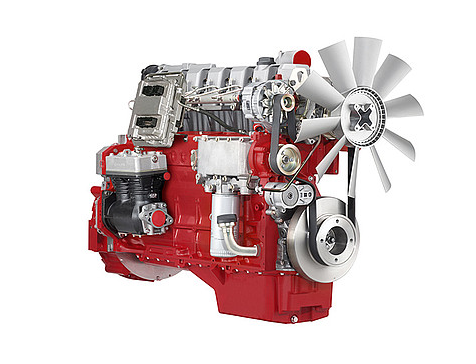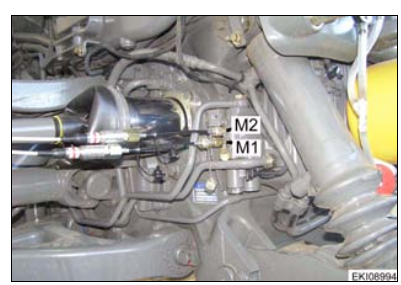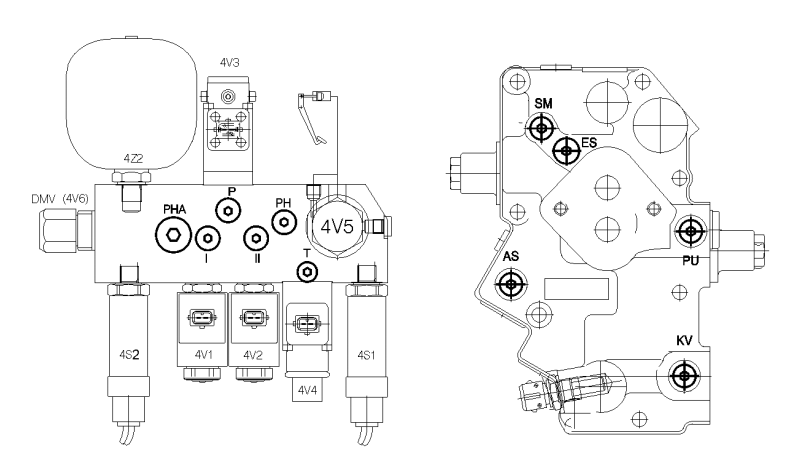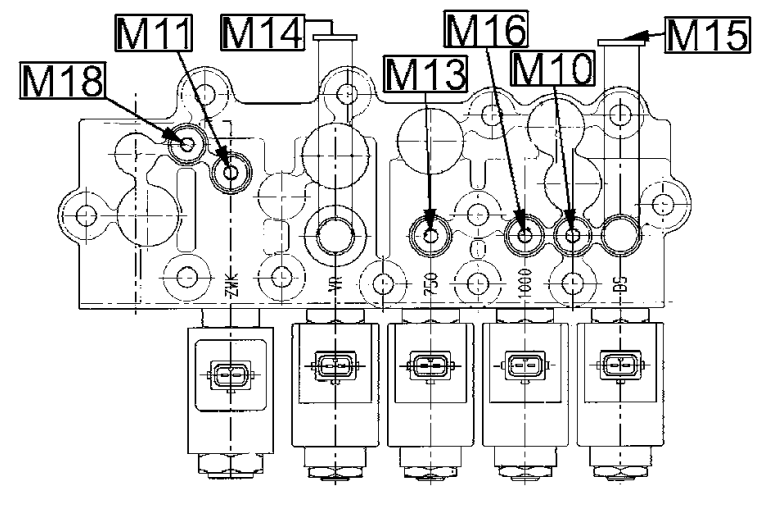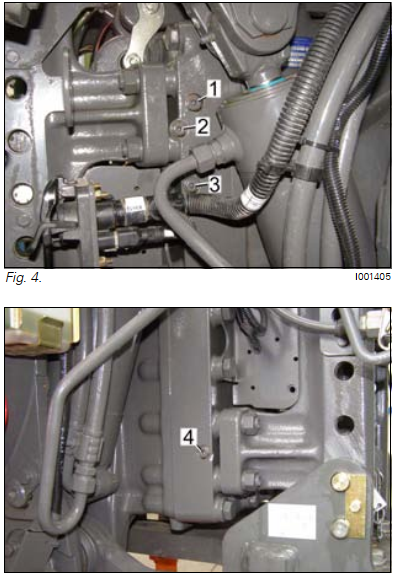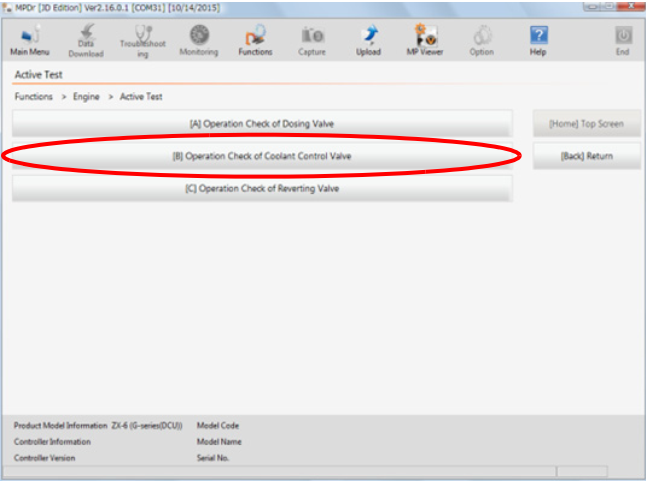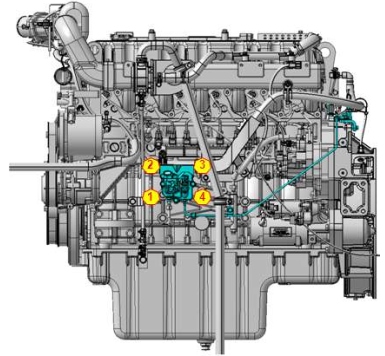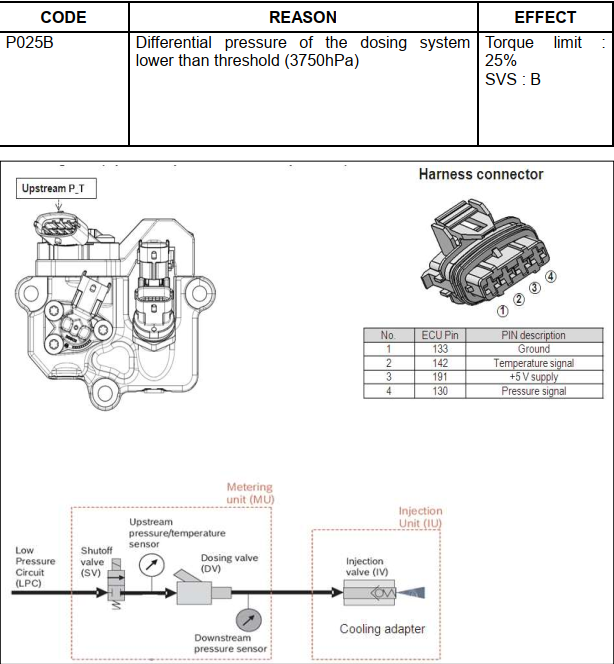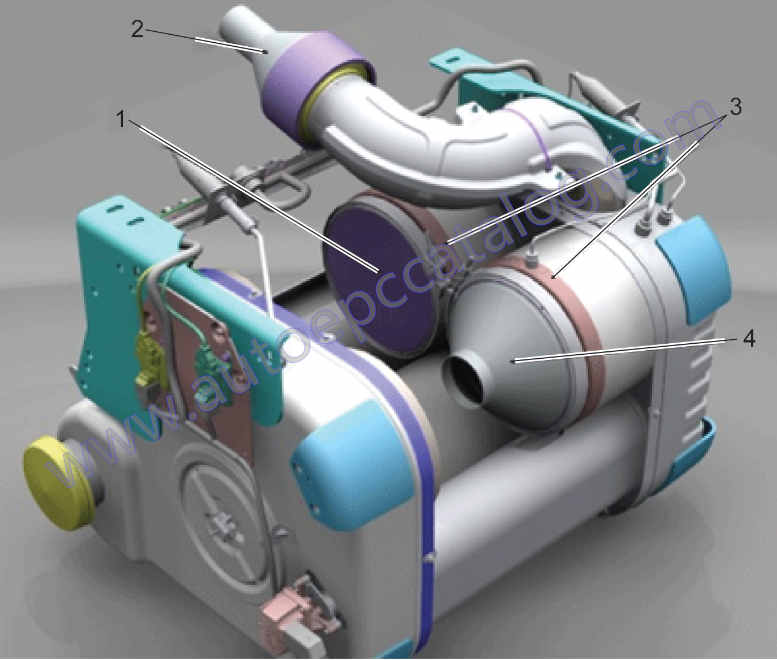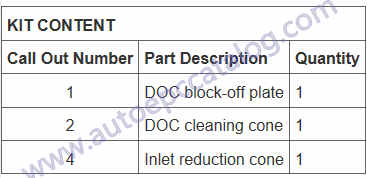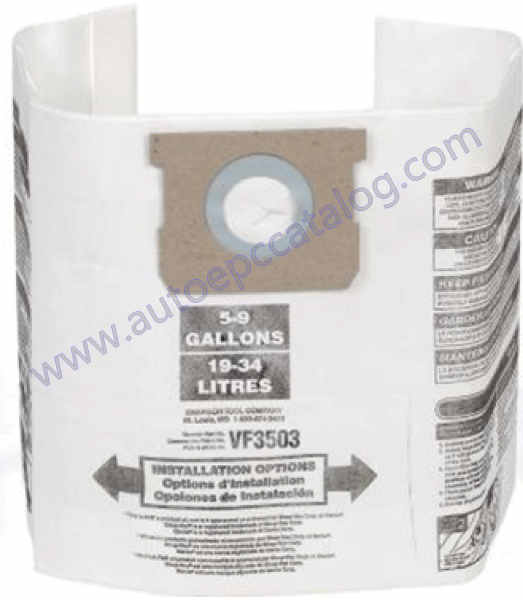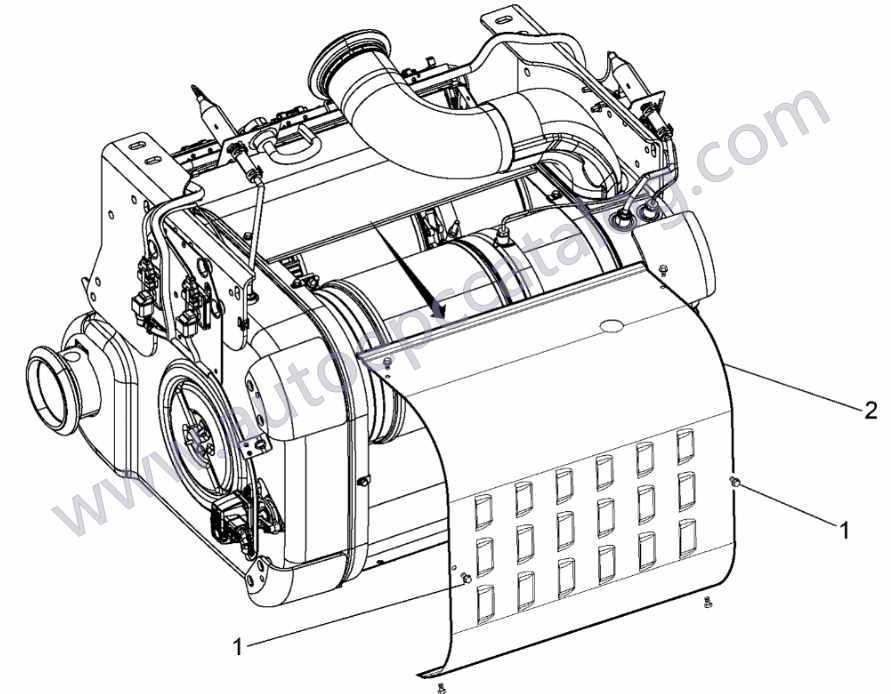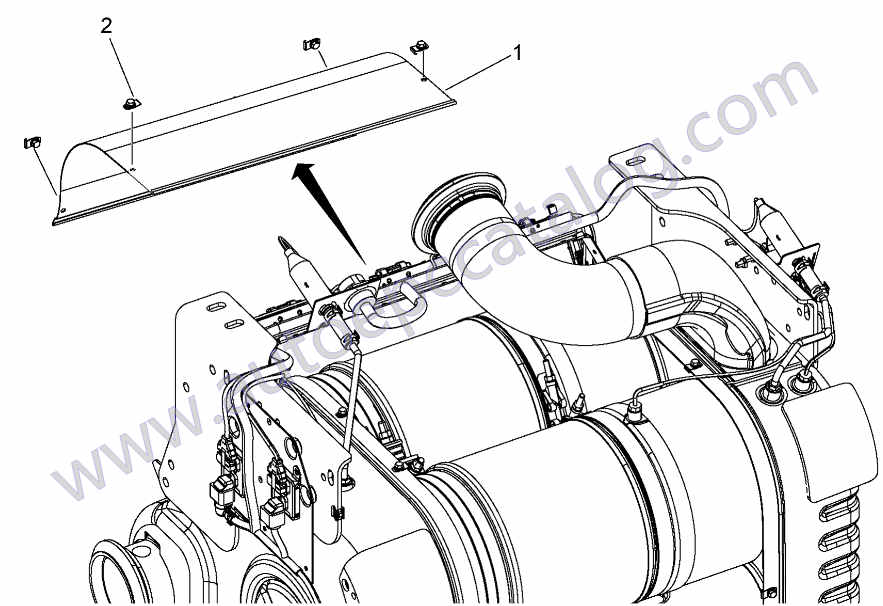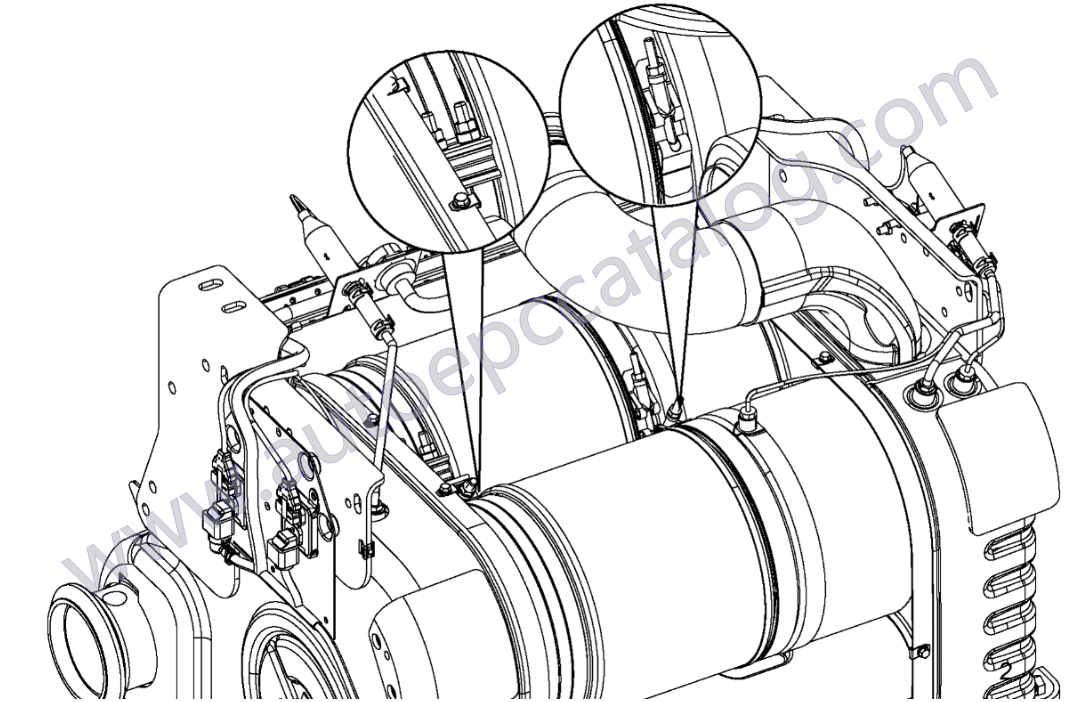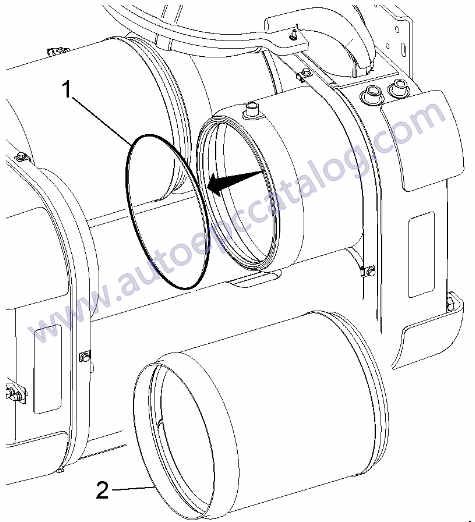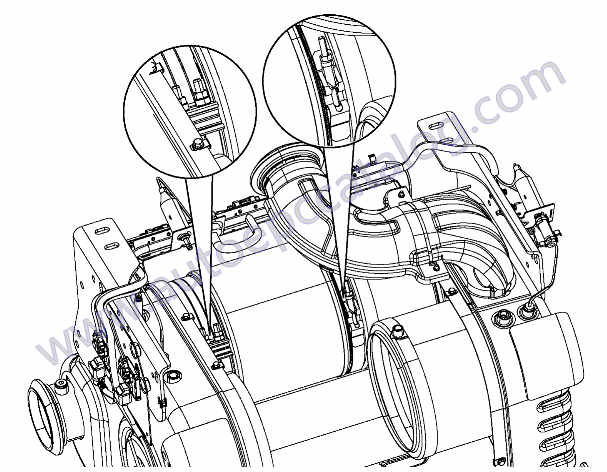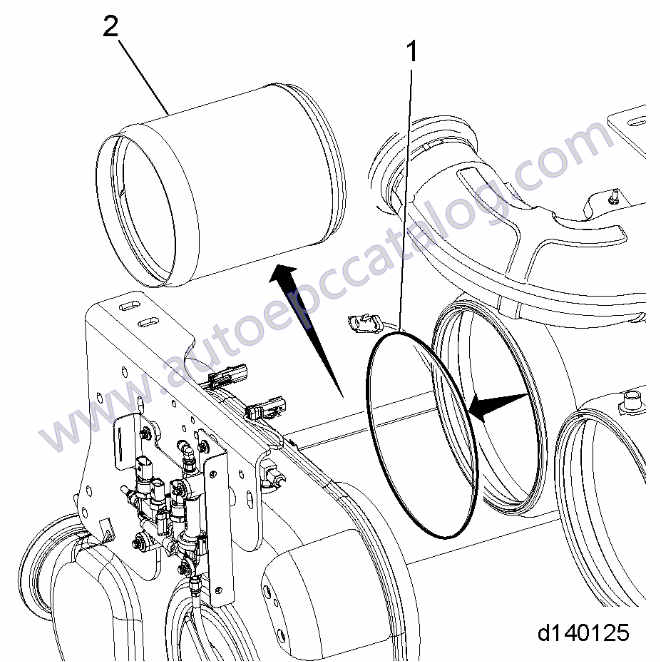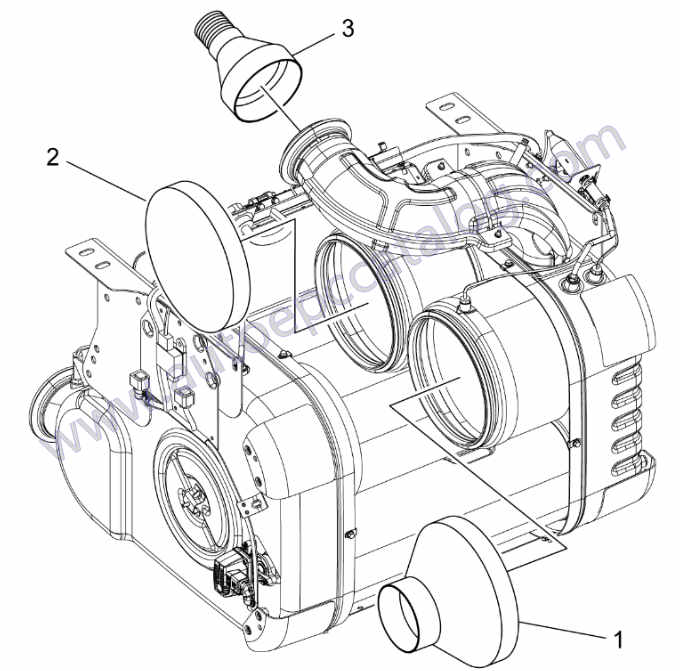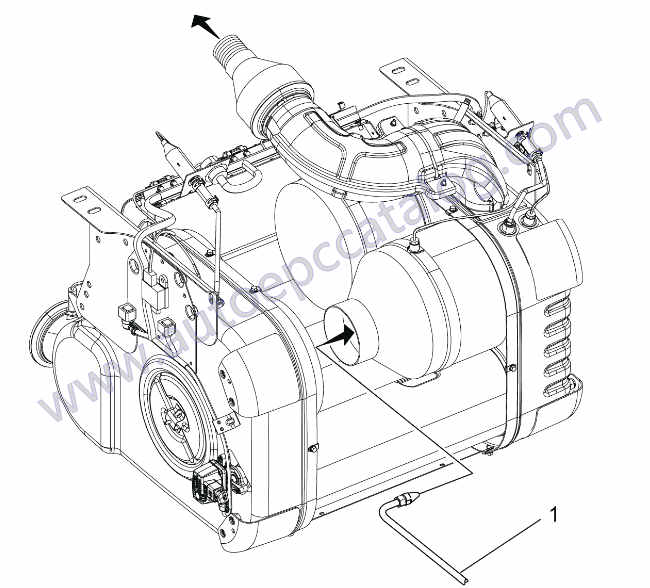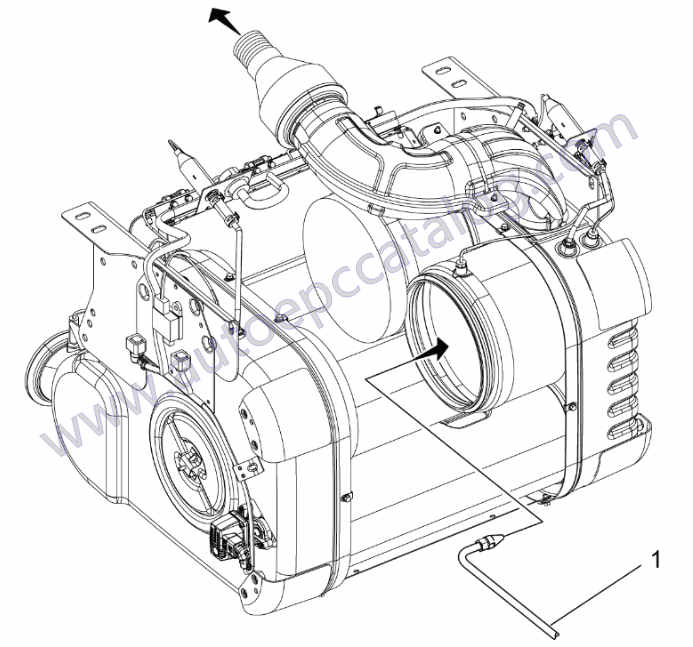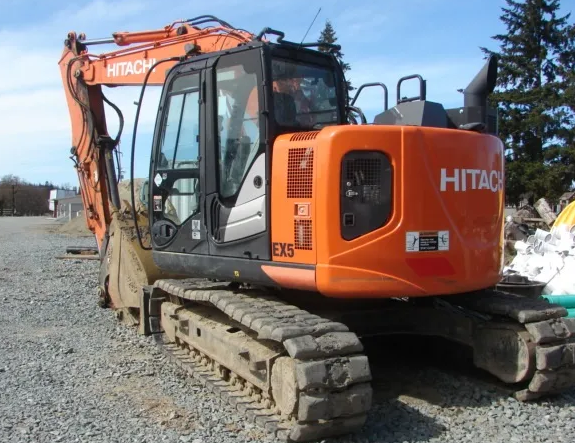
The engine coolant temperature sensor is installed near the thermostat housing. The engine coolant temperature sensor is a variable resistor and measures the temperature of the engine coolant. This sensor has a signal circuit and a GND circuit which are connected to the ECM. The sensor resistance is high when the engine coolant temperature is low, and the sensor resistance decreases as the engine coolant temperature increases. The ECM detects a high voltage when the sensor resistance is high and a low voltage when the sensor resistance is low. If the ECM detects an excessively high signal voltage, the DTC is set.

Related Contents:
ISUZU IDSS MX2-T
ISUZU E-IDSS 2024
Condition for setting the DTC
Preconditions
・The ignition switch is ON. ・3 minutes or more have passed since the engine was started. ・DTCs P060B, P160B, and P1655 are not set.
Setting conditions
・The ECM detects that the engine coolant temperature sensor signal voltage is 4.9 V or more for 5 seconds.
Action taken when DTC sets
・Failure is indicated* in the monitor on the machine, or the diagnostic light illuminates.
Note: *Depending on the machine manufacturer, a failure may not be indicated.
・The ECM substitutes a default ECT value. ・The ECM limits the fuel injection quantity.
P0118 Diagnostics
OBD system check
Prioritized DTC check
Connect a trouble diagnosis scan tool.
Turn OFF the ignition switch for 30 seconds or more.
Start the engine.
Observe the DTC information with a trouble diagnosis scan tool. Is DTC P1655 set?
Yes
Go to DTC P1655 diagnosis.
No
⇒Go to Engine coolant temperature sensor signal voltage check.
Engine coolant temperature sensor signal voltage check
Observe “Engine coolant temperature sensor” display on the trouble diagnosis scan tool. Is “Engine coolant temperature sensor” display more than or equal to the specified value?
values: 4.9 V
Yes
⇒Go to Engine coolant temperature sensor signal output voltage check.
No
Go to Intermittent conditions of engine.
Engine coolant temperature sensor signal output voltage check
Turn OFF the ignition switch.
Disconnect the engine coolant temperature sensor harness connector.
Turn ON the ignition switch.
Measure the voltage between the engine coolant temperature sensor signal circuit and the frame ground with a DMM.
values: 4.5 to 5.5 V
The reading is more than the specified value.
⇒Go to Inspection for short to power supply in engine coolant temperature sensor signal circuit.
The reading is within the specified range.
⇒Go to Engine coolant temperature sensor signal voltage check using fused jumper wire.
The reading is less than the specified value.
⇒Go to Inspection for open circuit in engine coolant temperature sensor signal circuit.
Engine coolant temperature sensor signal voltage check using fused jumper wire
Connect a fused jumper wire between the sensor signal circuit and the sensor GND circuit of the engine coolant temperature sensor.
Observe “Engine coolant temperature sensor” display on the trouble diagnosis scan tool. Is “Engine coolant temperature sensor” display less than or equal to the specified value?
values: 0.1 V
Yes
⇒Go to Inspection for short to 5 V power supply in engine coolant temperature sensor signal circuit.
No
⇒Go to Inspection for open circuit in engine coolant temperature sensor GND circuit.
Inspection for short to power supply in engine coolant temperature sensor signal circuit
Inspect the signal circuit between the ECM and the engine coolant temperature sensor for a short to the battery power supply circuit or a short to the ignition power supply circuit. Is the result normal?
Note: The engine coolant temperature sensor may be damaged if the sensor signal circuit is shorted to the power supply.
Yes
⇒Go to ECM replacement.
No
Repair the circuit as necessary.
⇒Go to Repair verification.
Inspection for open circuit in engine coolant temperature sensor signal circuit
Inspect the signal circuit between the ECM and the engine coolant temperature sensor for an open circuit or high resistance. Is the result normal?
Yes
⇒Go to ECM harness connector inspection.
No
Repair the circuit as necessary.
⇒Go to Repair verification.
Inspection for open circuit in engine coolant temperature sensor GND circuit
Inspect the GND circuit between the ECM and the engine coolant temperature sensor for an open circuit or high resistance. Is the result normal?
Caution: The engine coolant temperature sensor shares the GND circuit with other sensors. A malfunction in the GND circuit may set DTCs on sensors that share this circuit.
Yes
⇒Go to ECM harness connector inspection.
No
Repair the circuit as necessary.
⇒Go to Repair verification.
Inspection for short to 5 V power supply in engine coolant temperature sensor signal circuit
Inspect the signal circuit between the ECM and the engine coolant temperature sensor for a short to the 5 V power supply circuit. Is the result normal?
Yes
⇒Go to Engine coolant temperature sensor harness connector inspection.
No
Repair the circuit as necessary.
⇒Go to Repair verification.
Engine coolant temperature sensor harness connector inspection
Inspect for poor connections at the engine coolant temperature sensor harness connector. Is the connection status normal?
Yes
Replace the engine coolant temperature sensor.
⇒Go to Repair verification.
No
Repair the connections as necessary.
⇒Go to Repair verification.
ECM harness connector inspection
Inspect for poor connections at the ECM harness connector. Is the connection status normal?
Yes
⇒Go to ECM replacement.
No
Repair the connections as necessary.
⇒Go to Repair verification.
ECM replacement
Note: Perform programming after replacing the ECM.
Procedure completion
⇒Go to Repair verification.
Repair verification
Clear the DTC with a trouble diagnosis scan tool.
Turn OFF the ignition switch for 30 seconds or more.
Start the engine.
Perform a test-run under the conditions for running the DTC.
Observe the DTC information with a trouble diagnosis scan tool. A DTC should not be set.
